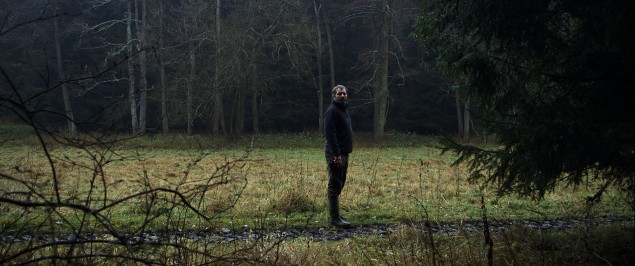
 Director: Sigmund Steiner | Austria | Documentary | 72 min
Director: Sigmund Steiner | Austria | Documentary | 72 min
Sigmund Steiner is the son of a farmer — and he wants us all to know it. Barely a moment into his feature-length debut THREE FARMERS AND A SON, he tells us in a quiet, reflective voice-over of his father’s trade and of his own bemusement at the longstanding notion that, for a farmer, tending to one’s land takes priority over one’s family. In the hope of coming to a better understanding of what is to him such a disconcerting idea, Steiner turns an inquisitive and attentive eye to the separate toils of three autonomous agricultural workers. Receiving its world premiere at the Diagonale, Austria’s national film festival held each year in Graz, Steiner’s finely poised essay-doc is a triptych of intimate portraits on the one hand, and a richly rendered landscape film on the other.
We establish each of Steiner’s three protagonists through a series of observational scenes. Matthias tends to a field of potatoes, shrugging a philosophical lament at his own son Dominik’s apathetic view of agriculture (Dominik shuffles next to him, hands in pockets, while double-chinned Matthias points to the flat expanse of earth behind them with his thumb). Fellow farmer Martin fells spruce trees: mammoth trunks land with dull thuds on a forest floor. Herbert, meanwhile, stands over a lamb as if its pending slaughter is a sacrifice to the heavens more than a routine task of economic necessity. “Thank you,” he calmly mutters seconds before shooting a bolt gun into the animal’s skull and slicing its throat. (Just another authentic slaughter scene on the arthouse circuit, but at least Steiner gets that inevitability out of the way early.)
Steiner intersperses such scenes with more contemplative, postcard vistas (sunrays cutting through clouds, the outlines of treed hills intersecting one another). All three farmers also give their time as interviewees, answering the filmmaker’s questions about their work, the extent to which it continues family customs and their concerns over what happens next, in the hands of an increasingly indifferent younger generation. Herbert in particular is nothing if not grateful for the down-through-the-generations traditions he’s had passed onto him, and dedicates himself to the task with an almost religious commitment. In one touching scene, we see him topless, silver-stubbled and sweaty-browed from the midday sun (head causing shadows on his own chest), as he reminisces about his own dad and about the one shared father-son moment that he remembers.
Born in the Upper Styrian town of Judenburg in 1978, Steiner studied under Wolfgang Glück and Michael Haneke at the Vienna Film Academy, and counts fiction shorts as well as experimental non-fiction in his wide-ranging portfolio. The steady framing of this impressively visual documentary most recalls his work as the cinematographer of Barbara Kaufmann’s shorts, such as 23 WINDOWS TO THE COURTYARD (2011). Like that 25-minute citywide ode to quieter, semi-private pockets of Vienna, THREE FARMERS evokes a vivid, even dramatic sense of place through shifts in natural light and a sensitivity to local sound. Look out for sun-kissed flies buzzing aglow against soil-brown pastures in one late-afternoon shot.
THREE FARMERS’ German-language title is HOLZ ERDE FLEISCH — literal translation, “Wood Earth Meat.” Bare necessities abound: it’s all earthen browns and olive greens here. Shooting in CinemaScope, Steiner demonstrates a sharp instinct for composition throughout: the opening image, of three distant (and distinct) hills at dusk, neatly cues the narrative’s tripartite structure. Later, silhouette figures on a horizon foregrounded by an avocado-coloured baize help reflect the filmmaker’s obvious appreciation for such earth-bound, year-round labour and for the topographical character of the space that defines such ritualistic patterns: its tones, its timbres, its colours. Indeed, but for the opening voice-over, one might have guessed from this evidence that Steiner was, in fact, the son of a painter. MICHAEL PATTISON
REVIEWED AT DIAGONALE | Festival of Austrian Film| March 8–13, 2016, Graz, Austria